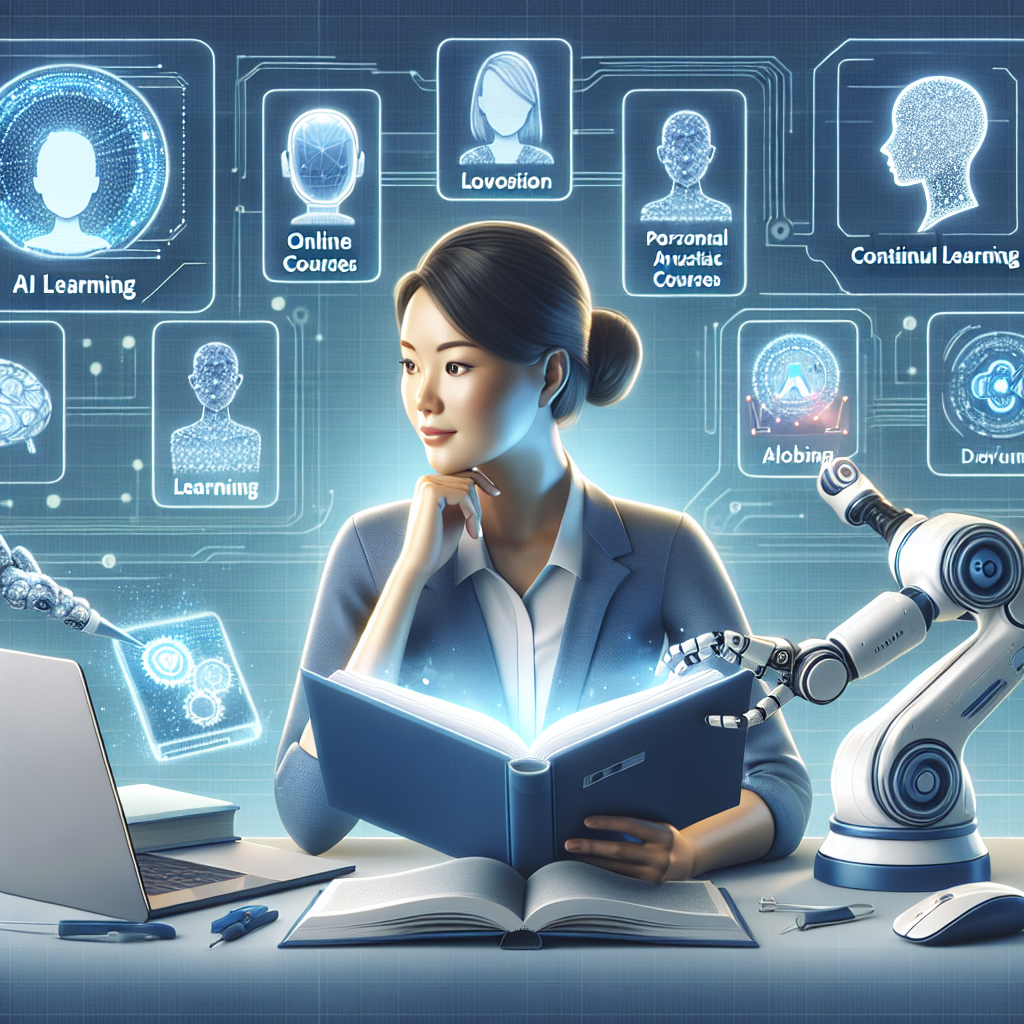AI Learning Resources: A Guide for Every Level
Whether you're a complete beginner or a seasoned professional, understanding AI is becoming increasingly crucial in today's rapidly evolving technological landscape. This guide will help you navigate the vast world of AI learning resources, tailored to your specific needs and goals.
Assessing Your AI Learning Objectives
Before diving into any AI learning resource, it's essential to clarify your objectives:
Personal Use: Are you looking to understand AI for personal productivity or curiosity?
Professional Development: Do you need AI skills for your current job or future career prospects?
Organizational Implementation: Are you aiming to integrate AI into your team or company's operations?
Resources for Beginners
If you're new to AI, start with these foundational resources:
Online Courses:
"AI for Everyone" by Andrew Ng on Coursera1
Microsoft's "AI for Beginners" curriculum7
Books:
"AI Made Simple: A Beginner's Guide to Generative Intelligence" by Rajeev Kapur26
"Artificial Intelligence: A Modern Approach" by Stuart Russell and Peter Norvig5
Video Tutorials:
SimpleLearn's Machine Learning Tutorial series1
For Managers and Decision-Makers
If you're in a leadership position, consider these resources:
Microsoft's Fundamentals of AI Guide: A comprehensive PDF designed for educators but valuable for all learners1
AI Career Coach: Available through LinkedIn Learning, this AI-powered chatbot offers personalized advice and content recommendations1
Learning Collections: Explore curated resources from platforms like LinkedIn Learning, Coursera, and Microsoft's AI Learning Hub1
Advanced Learning and Practical Application
For those looking to deepen their AI knowledge or apply it practically:
Technical Courses:
Andrew Ng's Machine Learning and Deep Learning specializations on Coursera4
Hands-on Projects:
Integrate AI tools like Microsoft Copilot into your daily workflow1
Experiment with AI-powered productivity features in Microsoft 365 applications1
Stay Updated:
Follow AI-focused newsletters like "Cognitive Courier," "The Neuron," and "The Sequence"4
The Importance of Continuous Learning
AI is a rapidly evolving field. What sets successful AI practitioners apart is their commitment to continuous learning and adaptation. By regularly engaging with AI tools and staying informed about new developments, you'll be better equipped to leverage AI effectively in your personal and professional life.
Leveraging AI for Self-Improvement
One often overlooked aspect of AI learning is using AI tools for self-reflection and improvement. AI can provide unbiased feedback on your ideas and help identify blind spots in your thinking. This approach is valuable regardless of your position in an organization.
AI Proficiency: A Competitive Advantage
The saying "AI won't take your job, but someone who knows how to use AI will" rings increasingly true. To stay competitive and relevant in today's rapidly evolving job market, everyone should develop at least a basic understanding of AI and learn how to leverage it in their everyday lives and work.
Practical Steps for AI Integration
Experiment with Various AI Tools: Try different large language models, video generative systems, and other AI applications. Whether it's ChatGPT, Google's Gemini, Claude from Anthropic, or others, find the tools that work best for you.
Incorporate AI into Your Daily Routine: Start small by using AI for tasks like email drafting, brainstorming, or research. Gradually expand its use as you become more comfortable.
Embrace the Learning Curve: Remember, mastering AI is like learning to ride a bike. You might get "dumb" answers initially or struggle to formulate the right prompts. Don't get discouraged – this is part of the learning process.
Continuous Improvement: As AI systems evolve, so should your skills. Stay updated with the latest developments and continuously refine your AI interaction techniques.
Be an Active Participant: AI won't do all the work for you. Your creativity, critical thinking, and ability to guide the AI are crucial. The more effort you put into learning how to effectively use AI, the better results you'll achieve.
The Future is AI-Augmented
By taking these steps and committing to ongoing learning, you're not just preparing for the future – you're actively shaping it. In an AI-augmented world, those who can effectively collaborate with AI will have a significant advantage in problem-solving, creativity, and productivity.
Remember, the goal isn't to replace human intelligence but to augment it. By embracing AI and integrating it into your skill set, you're positioning yourself at the forefront of innovation, ready to tackle the challenges and opportunities of tomorrow's world.
Start your AI journey today – your future self will thank you for the competitive edge and the expanded capabilities you've developed.
Conclusion: Embracing AI as an Essential Skill
The AI learning journey is indeed personal and should align with your specific goals. However, it's crucial to recognize that a fundamental understanding of generative AI is becoming essential for everyone, regardless of their field or position.
References:
[1] https://innovate.it.utexas.edu/learn-ai/
[2] https://www.corey-siebert.com/single-post/review-ai-made-simple-by-rajeev-kapur
[3] https://laeditorsandwritersgroup.com/should-you-let-ai-write-your-book/
[5] https://www.reddit.com/r/compsci/comments/1e5g8z2/is_artificial_intelligence_a_modern_approach_a/
[7] https://microsoft.github.io/AI-For-Beginners/
[8] https://www.goodreads.com/book/show/195248668-ai-made-simple


